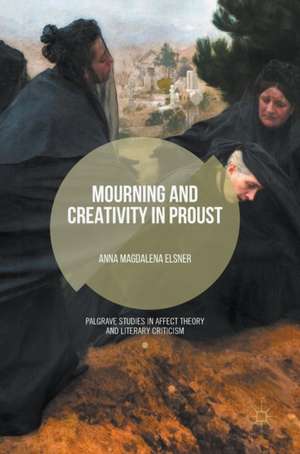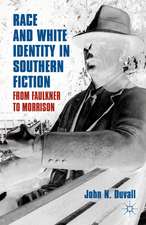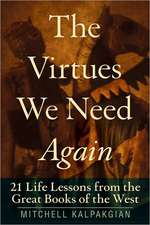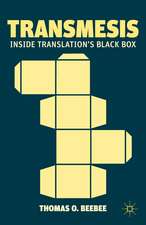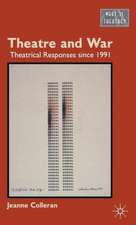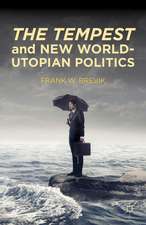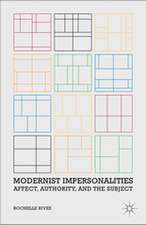Mourning and Creativity in Proust: Palgrave Studies in Affect Theory and Literary Criticism
Autor Anna Magdalena Elsneren Limba Engleză Hardback – 14 mar 2017
Preț: 642.51 lei
Preț vechi: 755.88 lei
-15% Nou
Puncte Express: 964
Preț estimativ în valută:
122.96€ • 127.90$ • 101.51£
122.96€ • 127.90$ • 101.51£
Carte tipărită la comandă
Livrare economică 14-28 aprilie
Preluare comenzi: 021 569.72.76
Specificații
ISBN-13: 9781137603302
ISBN-10: 1137603305
Pagini: 238
Ilustrații: XIX, 249 p. 4 illus.
Dimensiuni: 148 x 210 x 16 mm
Greutate: 0.48 kg
Ediția:1st ed. 2017
Editura: Palgrave Macmillan US
Colecția Palgrave Macmillan
Seria Palgrave Studies in Affect Theory and Literary Criticism
Locul publicării:New York, United States
ISBN-10: 1137603305
Pagini: 238
Ilustrații: XIX, 249 p. 4 illus.
Dimensiuni: 148 x 210 x 16 mm
Greutate: 0.48 kg
Ediția:1st ed. 2017
Editura: Palgrave Macmillan US
Colecția Palgrave Macmillan
Seria Palgrave Studies in Affect Theory and Literary Criticism
Locul publicării:New York, United States
Cuprins
Introduction: Melancholia's Afterlives.- Chapter 1: Time of death: Alterity.- Chapter 2: Mourning and the Uncanny Space.- Chapter 3: The Ethics of Creation.- Epilogue: Fidelity to the Intermittences.
Recenzii
“Its lucid and nuanced discussion of the Proustian ethics of creation is part of what makes this book a valuable addition to the field of Proust studies and a pleasure to read.” (Synne Ytre Arne, Modern Language Review, Vol. 115 (3), July, 2020)
Notă biografică
Anna Magdalena Elsner is currently a Leverhulme Early Career Fellow in the Department of French and the Centre for the Humanities and Health at King’s College London, UK. She completed her doctoral research at the University of Cambridge, UK.
Textul de pe ultima copertă
This study explores Proust’s answers to some of the fundamental challenges of the inevitable human experience of mourning. Thinking mourning and creativity together allows for a fresh approach to the modernist novel at large, but also calls for a reassessment of the particular historical and social challenges faced by mourners at the beginning of the twentieth century. The book enables the reader to acknowledge loss and forgetting as an essential part of memory, and it proposes that this literary topos has seminal implications for an understanding of the ethics, aesthetics, and erotic in Proust’s A la recherche du temps perdu. Drawing on the works of Sigmund Freud and Jacques Derrida, Anna Magdalena Elsner develops an original theory of how mourning and creativity are linked by emphasizing that ethical dilemmas are central to an understanding of the novel’s final aesthetic apotheosis. This sheds new light on the enigmatic and versatile nature of mourning but also pays tributeto those fertile tensions and paradoxes that have made Proust’s novel captivating for readers since its publication.
Caracteristici
Moves with ease through a variety of discourses, including psychoanalysis, philosophy, theories of emotion/affect, and literary criticism to present careful close readings of Proust’s famed novel Forms a bold and unique argument in its dual assessment of mourning and creativity Sheds light on the ethical dilemmas arising at the end of the novel, making this study a timely and much needed contribution to Proust studies
